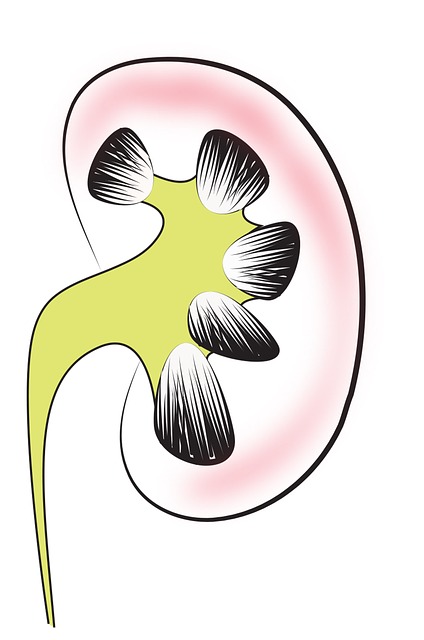Have you ever looked down at your feet and found swollen legs? This is a common problem.
While some people do not pay attention to leg swelling and pass it on as weight gain, it is important to know that swelling of your legs could be a sign of something serious. Here, I will take a look at some of the common reasons why it might occur.
Your Feet And Legs
Before I go into details regarding leg edema, I would briefly like to tell you about your feet and legs.
On the surface of your feet and legs is skin (as is the case everywhere else!). Beneath the skin is tissue called ‘subcutaneous tissue’. This tissue protects the underlying muscles and bones including nerves and blood vessels.
Fluid accumulation in the subcutaneous tissue is called leg edema. It is the reason why your legs are swollen.
Under the skin are also present blood vessels. These not only supply oxygen and nutrient rich blood to the feet, they also bring back blood to the heart through the veins. Having a good blood supply is important in keeping your feet and legs looking like a runway models. 🙂
Reasons Why You Have Swollen Legs
Okay, now let’s see why your legs are swollen.
#1 Poor Leg Circulation
One of the most common reasons why your legs might be swollen is because the circulation to the leg is not adequate.
When the heart pumps blood to the leg, it should return back to the heart through the veins. If there are varicose veins, then this return of blood is affected.
In fact, the blood flow back to the heart slows down, and a lot of the blood remains within the veins itself. This is called ‘stasis’.
The blood that is parked in the veins leaks out fluid, and this can cause swollen legs.
In other words, if the circulation to your leg is affected, it could lead to water accumulation in your legs.
Being overweight can also affect circulation greatly. Leg edema is not an uncommon finding if you are overweight.
Solution
If your doctor believes that your leg swelling is due to circulatory reasons, then all you need to do is keep the limbs elevated when you are sitting for long hours.
You can easily do this by placing a stool or bench in front of your chair and resting your leg on it. Do remember that the foot must be higher than the level of your hip.
At night when you are sleeping, you could keep a pillow or 2 under the feet as well. This will help the fluid drain back to the heart, thus reducing the swelling.
If you are overweight, do your best to lose weight.
#2 Medication
Certain medicines that are used in the control of blood pressure can cause swelling of the legs.
The most notorious one amongst them all is Amlodipine. This is a ”calcium channel blocker” class of drugs, and includes others such as cilnidipine and benidipine.

Leg swelling due to amlodipine can occur days to months after use.
Other medicines that can lead to leg swelling include non steroidal pain killers (as they can affect the kidneys – see later), steroids and diabetes drugs like pioglitazone and rosiglitazone (these are being used less frequently now because of this).
Solution
Fortunately, this is easily reversible and just stopping the medicine and using a suitable alternative will do the job in most cases. However, certain medicines may cause permanent damage to the kidneys.
Always, always, always speak to your doctor before you stop or start medicines.
#3 A Weak Heart
I have already spoken about signs that could indicate you have a weak heart. In that, I have mentioned about leg swelling being one of the signs.
Swollen legs that is often associated with breathing difficulty is sometimes an indicator of heart failure, or a weak heart.

Once again, as the heart is weak, the swelling in the leg is related to poor circulation and low blood pressure.
Solution
If you have a weak heart and your legs are swollen, then there are certain measures that need to be taken.
Reduce your salt intake. Reduce your water intake. Your doctor will tell you how much of each you need to do.
Excessive water in the legs can be removed using medications called ‘diuretics’ or ‘water tablets’. These push the kidneys to get rid of excessive water through the urine.
#4 Kidney Disease
Your kidneys are the filtering system of your body. If it not working properly, extra water that should have been  removed from the body starts to accumulate in the legs.
removed from the body starts to accumulate in the legs.
The kidneys may be affected and damaged by a number of different conditions. Diabetes, high blood pressure, excessive use of painkillers and problems within the kidney itself (such as nephrotic syndrome) can all lead to kidney damage.
Solution
Sometimes, kidney damage is inevitable if you have diabetes or high blood pressure.
Keep your kidneys fit and fine by following a healthy lifestyle, eating well and performing regular exercise. Avoid the use of painkillers for even the slightest of pain.
#5 Pregnancy
Leg edema is very common in pregnancy, and is usually of no major concern.

However, some pregnancies may be complicated by high blood pressure (called ecclampsia) or blood clots in the legs.
If this is the case, then make sure you seek medical attention.
#6 Liver Disease
Individuals with liver disease due to excessive alcohol intake (or any other reason) may also develop swelling in the legs.

Advanced liver disease, also called liver cirrhosis, is a common condition encountered in clinical practice. Easy availability of cheap alcohol and lack of education about the harmful effects of it are all contributory.
The most common reason for the development of swollen legs in liver disease is low level of protein in the body.
The levels of albumin, an essential protein that is synthesised in the liver, is reduced in the blood stream in liver disease. Low albumin level can cause leg swelling.
Having a low albumin level can also cause leaking of fluid into the abdomen, causing a condition called ascites. This requires treatment as it can lead to breathlessness and even brain damage.
Solution
Avoid excessive consumption of alcohol. Simple.
#7 Blood Clot In The Leg Veins
A blood clot in the leg veins, also called deep vein thrombosis, is a serious condition that requires urgent attention.
This is because this clot can break off and enter the lungs, leading to a possibly fatal condition called pulmonary embolism.
Deep vein thrombosis is caused due to immobility of the lower limbs for prolonged duration of time. Oral contraceptive pills can also cause the problem.
When there is a clot in the legs, the blood cannot be pumped back from the legs to the heart. This is because the clot blocks off the blood circulation.
This leads to swollen legs. Usually, only one leg is affected at a time, and very rarely are both legs affected.
(I will be discussing this problem in detail in a future post).
Solution
If you notice only one of your legs has a lot of water accumulated in it, then you may want to ensure you do not have a blood clot in it. A simple ultrasound test will suffice.
With respect to treatment, all you need to know for now is that it requires blood thinners for a period of 6 months or more. Elevation of the leg is essential to reduce leg edema.
#8 Infection
Infection of the tissues that lie under the skin of the leg is called cellulitis.
Cellulitis leads to not just redness of the affected area, fever and pain; it can also lead to swollen legs.
Once again, cellulitis rarely affects both legs. It is more common in individuals with diabetes. Often, the infection enters the leg through a break in the skin in between the toes.
Solution
Limb elevation forms a part of the treatment regime. Antibiotics will be prescribed for your doctor to treat the infection.
#9 Injury
A fractured ankle or injury to the legs can sometimes cause swollen legs.

Many a times, this is just a normal response as the blood flow increases to the area in an attempt to heal the injured tissues. However, too much swelling can itself cause pain.
Solution
If a fracture is confirmed, then urgent treatment is needed to fix the fracture. Leg swelling can once again be reduced using anti-inflammatory drugs and leg elevation.
#10 Immobility
Have you ever been on a long road trip and found your legs to be swollen when you reach your destination?
This is a very common problem and is really nothing to worry about.
Leg swelling after a long journey has to do with the fact that you have been in one position for a long time and are relatively immobile.
Solution
Once you start moving around, the leg swelling will settle by itself.
Closing Remarks
So there you have it – the common reasons for swollen legs. Remember, it can be normal in a small number of cases, but make sure your doctor tells you so.
If you find a swelling in your legs and are not sure why, please seek medical attention as soon as possible.
- CT Coronary Calcium Score: A Guide for Patients - January 7, 2024
- Gastric Antral Vascular Ectasia (GAVE) – Causes, Diagnosis, and Treatment - August 5, 2023
- Understanding Xanthelasma: Causes, Symptoms, and Treatment Options - June 28, 2023


DEAR DOCTOR,
GREETINGS FROM S M PAI,YOUR SWOLLEN LEGS ARTICLE IS REALLY EXCELLENT.MOST OF THE SYMPTOMS AND
THE LINE OF TREATMENT AS YOU HAVE SUGGESTED ARE EXPERIENCED BY DAY TO DAY BY AGED PERSONS.I CAN NARRATE A FEW EXAMPLES, MY MOTHER WHO IS IN HER EIGHTIES HAS LONG STANDING PROBLEM OF VARICOSE VEINS SHE EXPERIENCES ONCE IN WHILE SWOLLEN LEGS.
WHERE AS IN MY CASE I AM 63 I DON,T UNDERGO ANY SWOLLEN LEGS BUT I GET CRAMPS TO MY CALF MUSCLE AT MIDNIGHT WHAT CAN BE THE REASON FOR THIS I, IS IT BECAUSE OF A POOR CIRCULATORY SYSTEM OR BECAUSE OF HIGHER TRIGLYCERIDES LEVEL IN THE BLOOD.SORRY FOR DISCUSSING PERSONAL HEALTH ISSUES
ANY WAY IT WAS REALLY GOOD ARTICLE PLEASE KEEP ON WRITING SO THAT WE CAN ALSO BE A PART OF YOUR HEART SENSE BETTER HEARTS BETTER LIVES .
HAVE A GOOD DAY